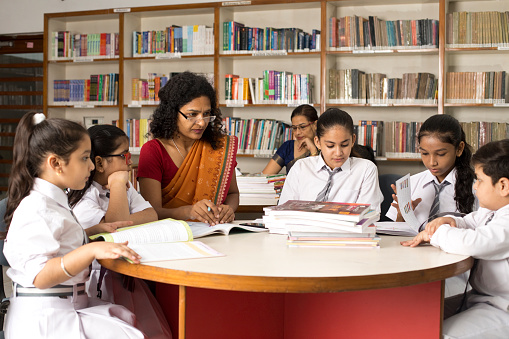This semester, I served with a team of students conducting research for Alliance Defending
Freedom (ADF) India. ADF India advocates for human rights by changing culture and impacting
the law through promoting religious freedom and human dignity in India. My team’s project
focused on studying the history of religious educational institutions and the legal rights of
students who belong to religious minorities.
The Indian Constitution mandates free, compulsory education for children between the ages of 6-14. In 2009, India passed the Right of Children to Free and Compulsory Education Act (the RTE
Act), which statutorily codifies the right of children in this age group to “satisfactory” education
in a school that adheres to norms and standards. The RTE Act mandates governmental control
over many, if not most, aspects of public schools by regulating such details as school hours,
student-teacher ratios, and curricula.
In juxtaposition to authorizing tight-fisted control over public schools, the Indian Constitution
actually strips away the power that the Central and State governments hold over certain private
schools—including religious schools. Article 30 of the Indian Constitution guarantees the right
to religious and linguistic minorities to establish and direct their own educational institutions.
Article 30 also prohibits the Central government from discriminating against any minority-run
educational institution. In 2004, India established the National Commission for Minority
Educational Institutions (NCMEI) as an enforcement mechanism for and guarantor of Article 30
rights. The Commission serves two primary purposes. It advises Central and State governments
on issues related to minority education. It also oversees the process of establishing Minority
Educational Institutions (MEIs), because MEIs must maneuver through an application process.
Importantly, MEIs are exempted from the restrictions in the RTE Act. MEIs must have
operational and curricular independence; otherwise, Article 30 rights become meaningless. Yet,
opponents of the current MEI system argue for the abolition of NCMEI. Claims against MEIs
include allegations of serving as elitist havens, underperforming, avoiding giving seats to
disadvantaged students, and using arbitrary standards/procedures. Groups like the Hindu-aligned
think tank Centre for Policy Analysis are joining forces with governmental entities like the
National Commission for Protection of Child Rights (NCPCR) to oppose the educational rights
of religious minorities. These groups want to bring religious schools under the direct control of
the Central and State governments.
Such threats particularly impact Christian schools. Estimates vary, but an NCPCR report places
Christian schools at 70% of religious MEIs in India. If opponents have their way, the Modi
Regime will control what Christian schools teach, which students Christian schools admit, and
how Christian schools operate. Students affiliated with religious minorities will lose the right to
education that aligns with their faith.
My team’s research preemptively prepares attorneys and schools for the potential of such
persecution. From offices and desks on the other side of the world, our team is fighting behind-
the-scenes for ADF India’s mission. Our research will help Christian schools understand and
articulate their rights so that they can continue teaching Truth and the Gospel.
Written by Kate Creecy, a Center for Global Justice Law Clerk.
This post was written by a Center for Global Justice Student Staff member. The views expressed
in this post do not necessarily reflect those of Regent University, Regent Law School, or the
Center for Global Justice.

